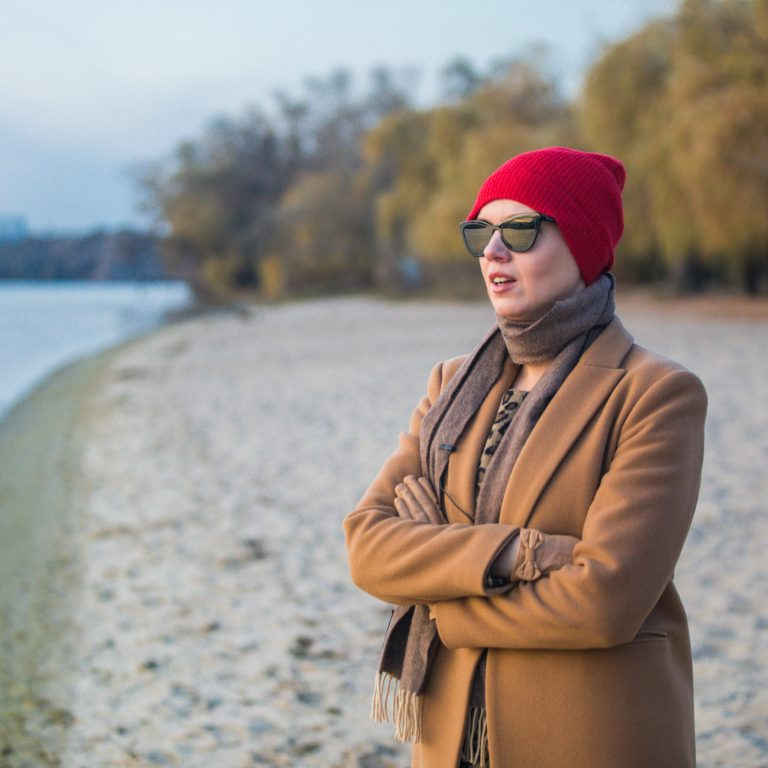For the ‘Ambassadors’ project, famous Ukrainians introduce us to the places where they spent many years of their lives. In the 13th episode, TV host and journalist Yanina Sokolova gives us her take on Zaporizhzhia, an industrial city that is known for much more than just the Dnipro Hydroelectric Power Plant. Many people are attracted here by the island of Khortytsia, which was the base for the Ukrainian Cossacks from the 16th to the 18th centuries.
The founder of the Ukraïner project, Bogdan Logvynenko, joined Yanina Sokolova to find out what makes the city tick.
— What’s your impression of the city where you grew up?
— In a way, it’s hard for me even to begin to understand how I ever lived here and dreamed here. I had so many aspirations. This city is not mine from an ideological standpoint, but I have so many awesome memories connected with it. It built my character, so I’m grateful for that, and I love it very much. This city is home to very spiritually strong people. Maybe it’s the effect of the Cossack spirit. I would love this city to become more Ukrainian.
— In what way did the city influence you?
— This city has this kind of adventurous energy, which I might have absorbed as well. I don’t have premonitions that everything will turn out badly, or that I’m going to fail. I’m a very responsible person, but I’m not afraid to dare to do things. I’m more afraid of not trying to do things, and that’s the spirit of the city. The people here are very determined, unless it has something to do with the local authorities, in particular any attempt to encourage change. That’s when another feature of the city’s mentality reveals itself: “You have to remain silent or things will take a turn for the worse, things will never get better.” “Things were better in the Soviet Union.” Those kinds of ideas.
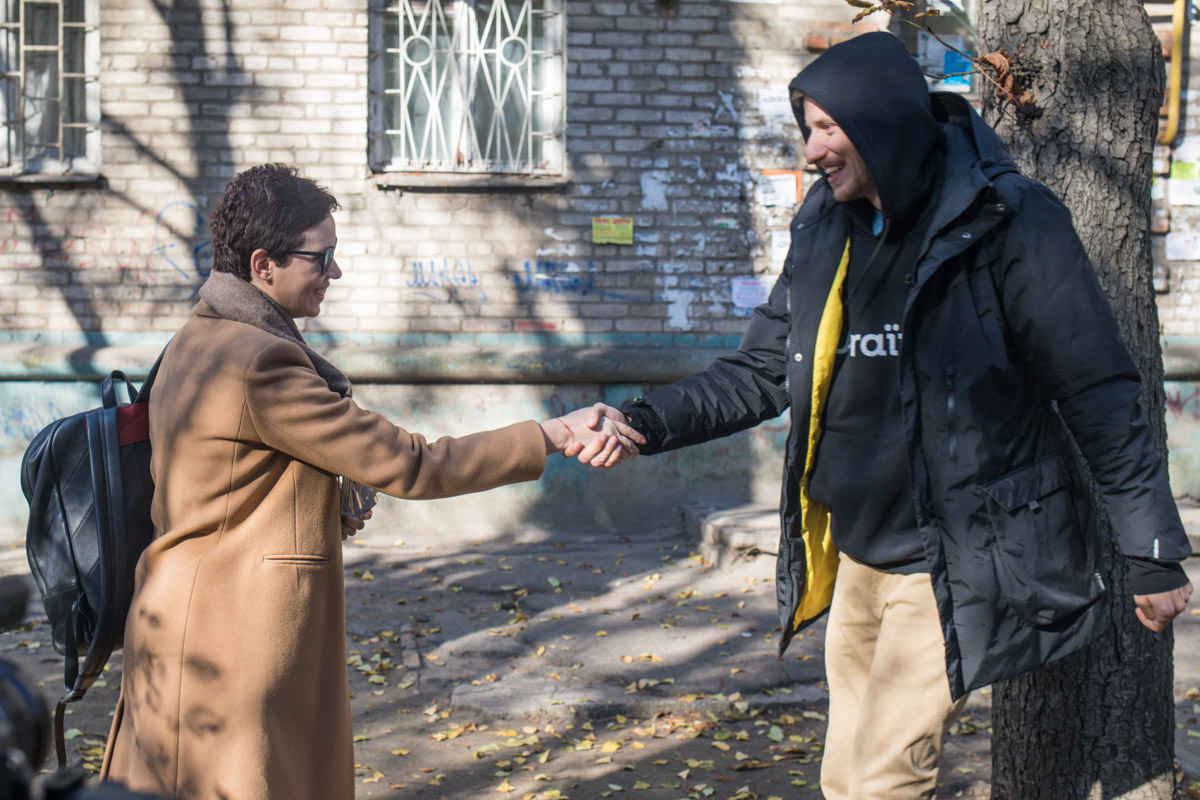
— What do you remember about the neighbourhood where you grew up?
— I felt like I was a big influence in my neighbourhood. I listened to ‘Terytoriya A’ (the first Ukrainian daily music chart show — ed.), and different Ukrainian musicians like Akvavita, I used to listen to Iryna Bilyk’s album ‘Farby’. Her song ‘I’m sailing in my boat’ could be heard in every corner of the neighbourhood. I began Ukrainianising my neighbours when I was a teenager, but it’s tough to be a conscious Ukranian here.
— Since the collapse of the Soviet Union, to what extent has Moscow retained its status as the capital of this region?
— That still remains the case. It is very sad that many of the locals haven’t understood anything, even when we’re at war. They don’t have any understanding of who they are.
Akvavita
One of the most popular Ukrainian bands from the end of the 1990s.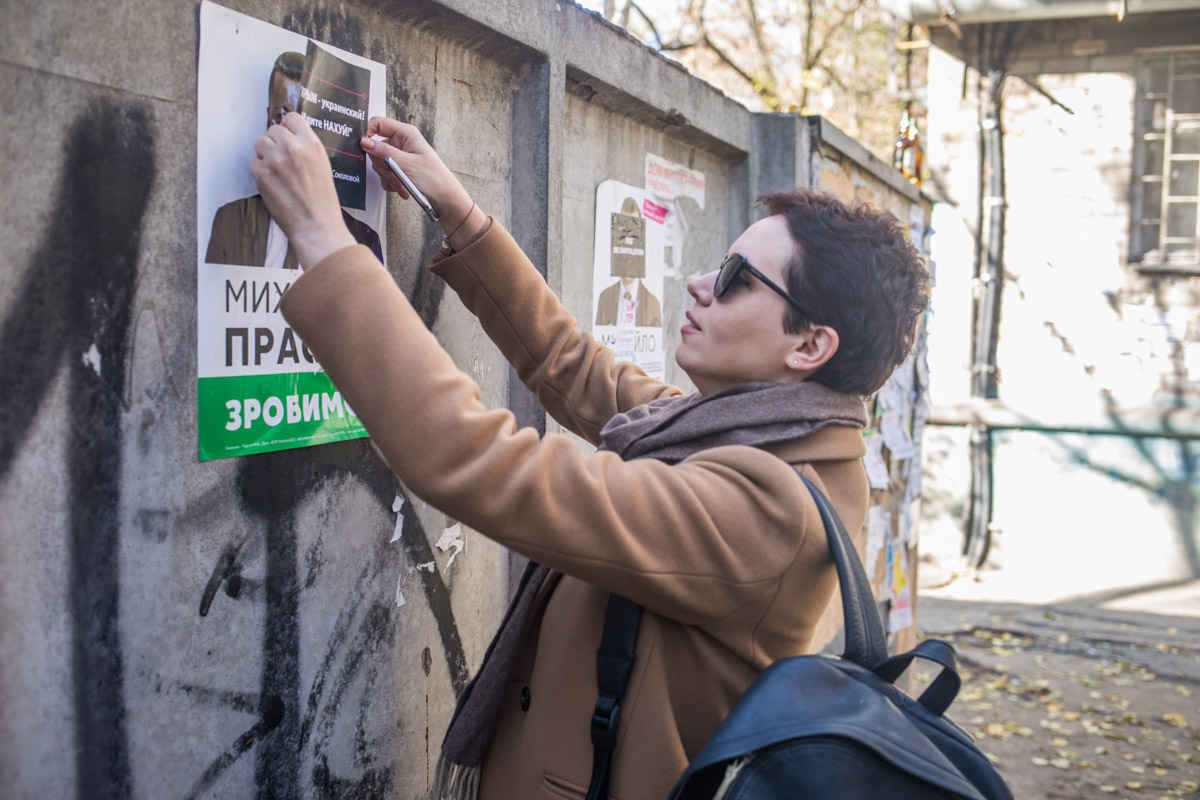
— How did Zaporizhzhia get Russified?
— I was born in the industrial district called Pavlo-Kichkas. It’s a district of factories and apartment buildings. The majority of its inhabitants were workers who came from Russia. My surname is Sokolova, and my family fell into this category. I haven’t been in touch with my father for quite a while, actually, nor is he in touch with us, and all his relatives are from Russia.
— Does geographical location have to do with it too?
— Well, the proximity of the Russian Federation has a certain influence. My school had an agreement with the Moscow Institute of Physics and Technology. It meant that after an interview in our gymnasium, you could get the opportunity to go to university in Moscow. Some students stayed there.
— How did you get into journalism? Did you work on the local TV channel TV5?
— I did for a short while, right after I finished school. Then I studied for two years at Zaporizhzhia University. After that, I entered Kyiv National University Theatre, Cinema and Television named after I. K. Karpenko-Kary. While studying there, I worked for a couple of TV channels. Then, during my second year, I won a big audition for a live TV show. It was on ‘Inter’ and was based on a Russian concept. My job was to host the live three-hour morning show, with a big salary, lots of perks and an apartment in the centre of Kyiv. That’s how my life changed.
‘Inter’
One of the most-watched television channels in Ukraine.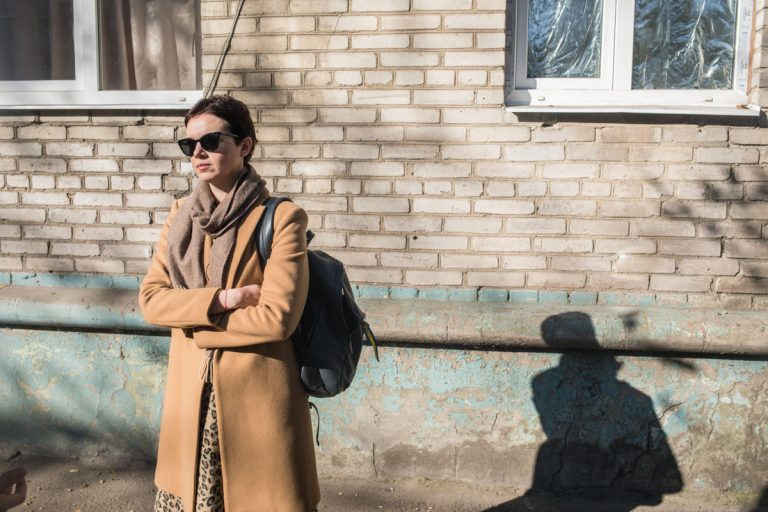
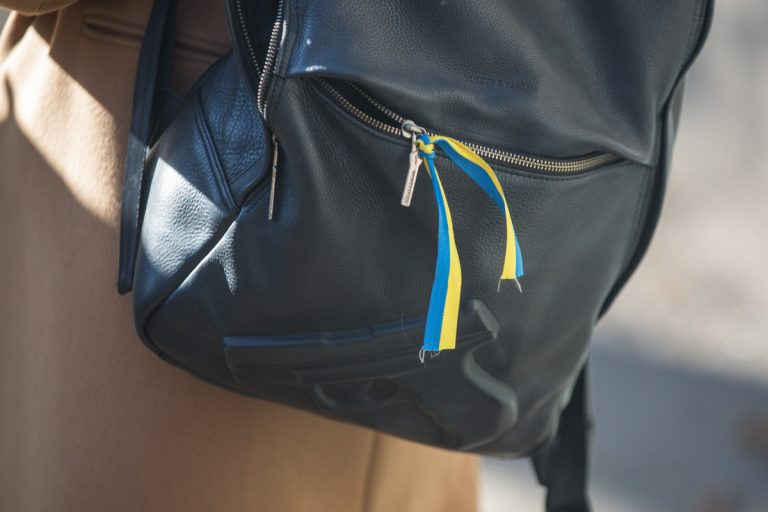
slideshow
— How did the idea of Ukrainian identity win you over?
— I don’t know. I can’t explain it. I simply like the culture and the language. I was always interested in protest, in some form or other. As a child, when you’re in a particular cultural environment and when your day is filled with various tasks that develop you, then you will conclude which ones help you to progress and which don’t. Thanks to my mother, I took part in everything, and I guess that’s where I got the idea of how to live my life.
— What theatrical experience do you have?
— I had never performed on stage before 2014, when we staged ‘Love Stories for Adults’ which toured all over Ukraine and was great fun. Some people go fishing, others plays chess, and others play Counter-Strike. I perform in the theatre.
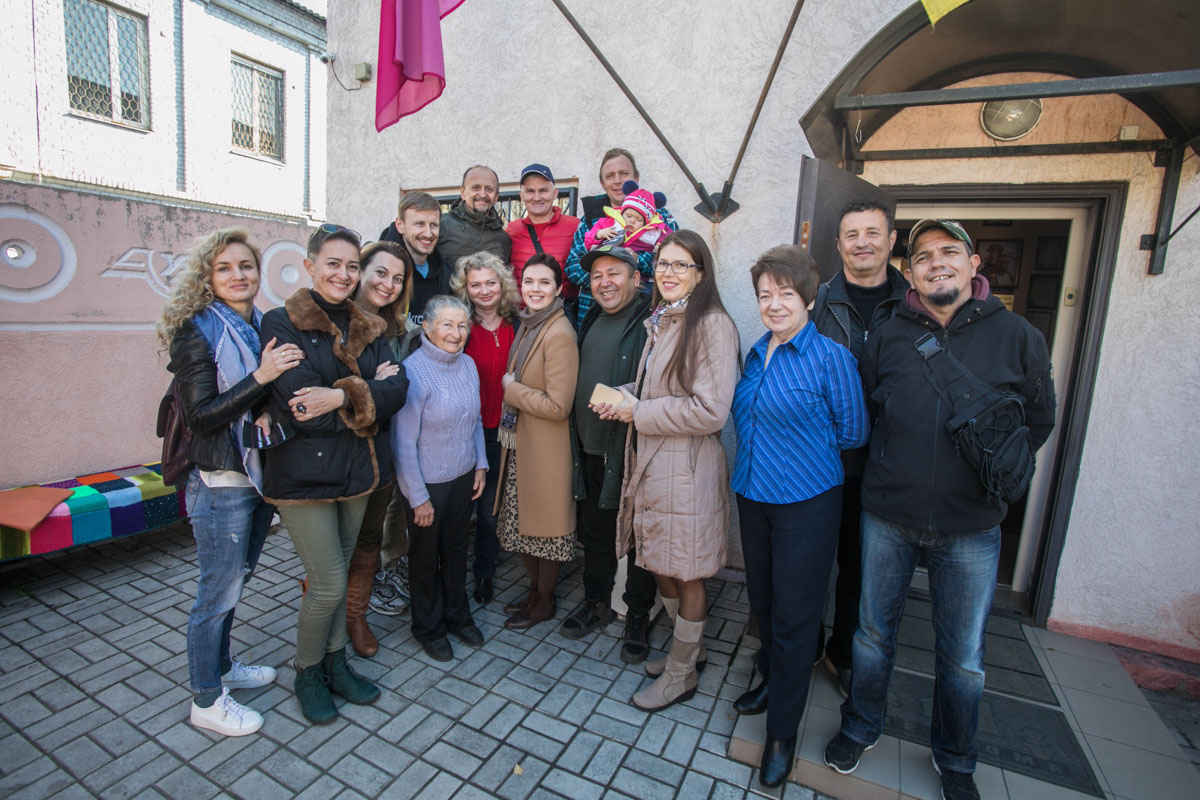
The volunteer centre ‘Soldiers’ Campsite’, located near Zaporizhzhia-1 railway station, opened in November 2015. It was created for soldiers and their relatives, to give them a chance to take a break while travelling through Zaporizhzhia. The centre fulfils the function of a hostel, and volunteer administrators work there in shifts around the clock. Liudmyla Volter, a military psychologist, works in the centre and knows first-hand how important it is to assist soldiers in re-adapting to civilian life: “Coming back home, returning soldiers hear things that undermine what they’ve experienced: ‘We didn’t send you there. What are you talking about? It can’t really be the way you describe it!’ It breaks them to pieces. It breaks us to pieces, because we have to deal with things like that. When people tell me that ‘returning soldiers are not normal’, I answer that they’re actually saner and more normal than most of us.”
— Before 2013, did you support friendship with Russia?
— I can’t say I was exactly in favour of friendship with Russia, but I was on friendly terms with the deputy head of what is now the LNR (the Luhansk National Republic, a terrorist organization — ed.), I was friends with one of the republic’s political strategists. We didn’t talk much about aggression, and then the war broke out, and I understood that the people who’d been my friends had turned out to be totally different people. I don’t think anybody could have foreseen the things that happened later on.
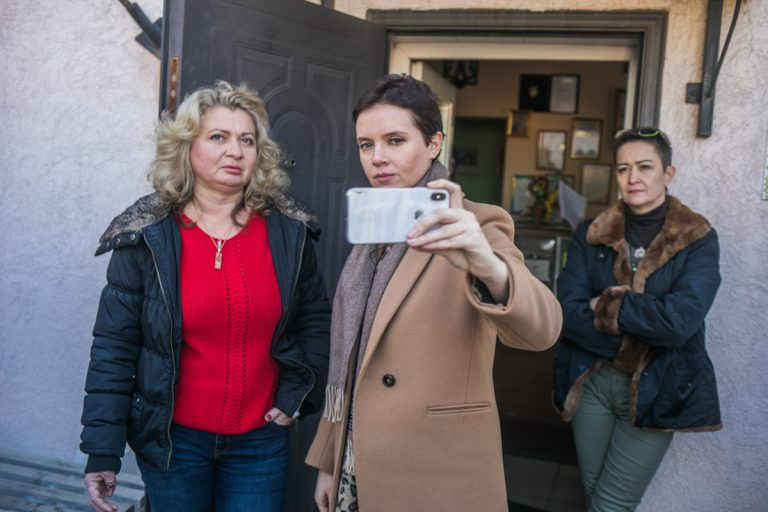
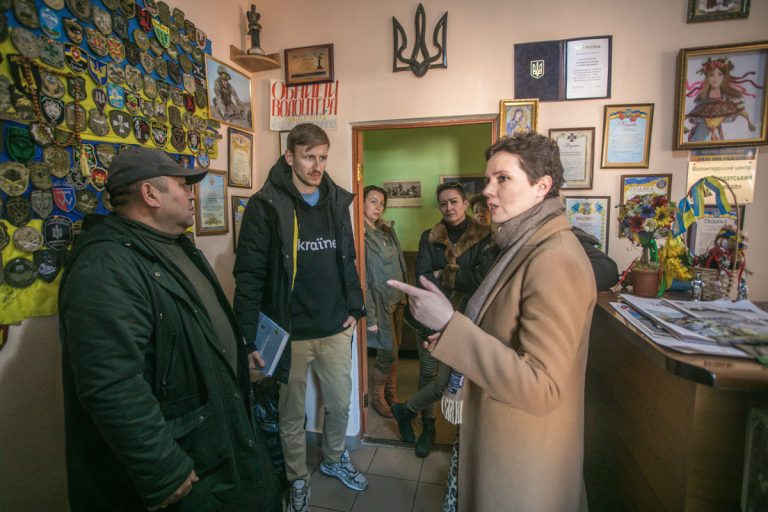
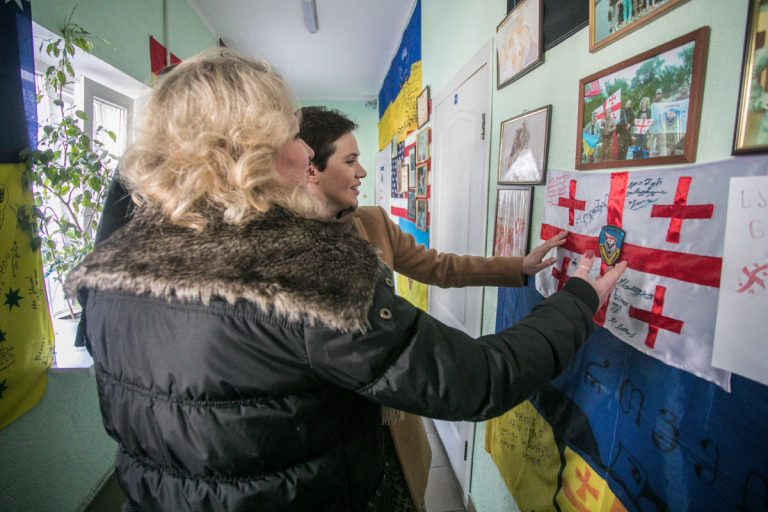
slideshow
— Have you changed your ideology, or did you simply not have one before?
— I think I did have one, but it was pretty blurry. I didn’t know who I was for a very long time, maybe even until 2010. My husband is from Lviv region, and when we met he was pretty tolerant of the fact I was predominantly Russian-speaking, and of my attitude towards Russia. But when we got married and started discussing strategic issues, a lot of things changed. Long before the war started, he rightly said that we needed to distance ourselves from the Russian Federation.
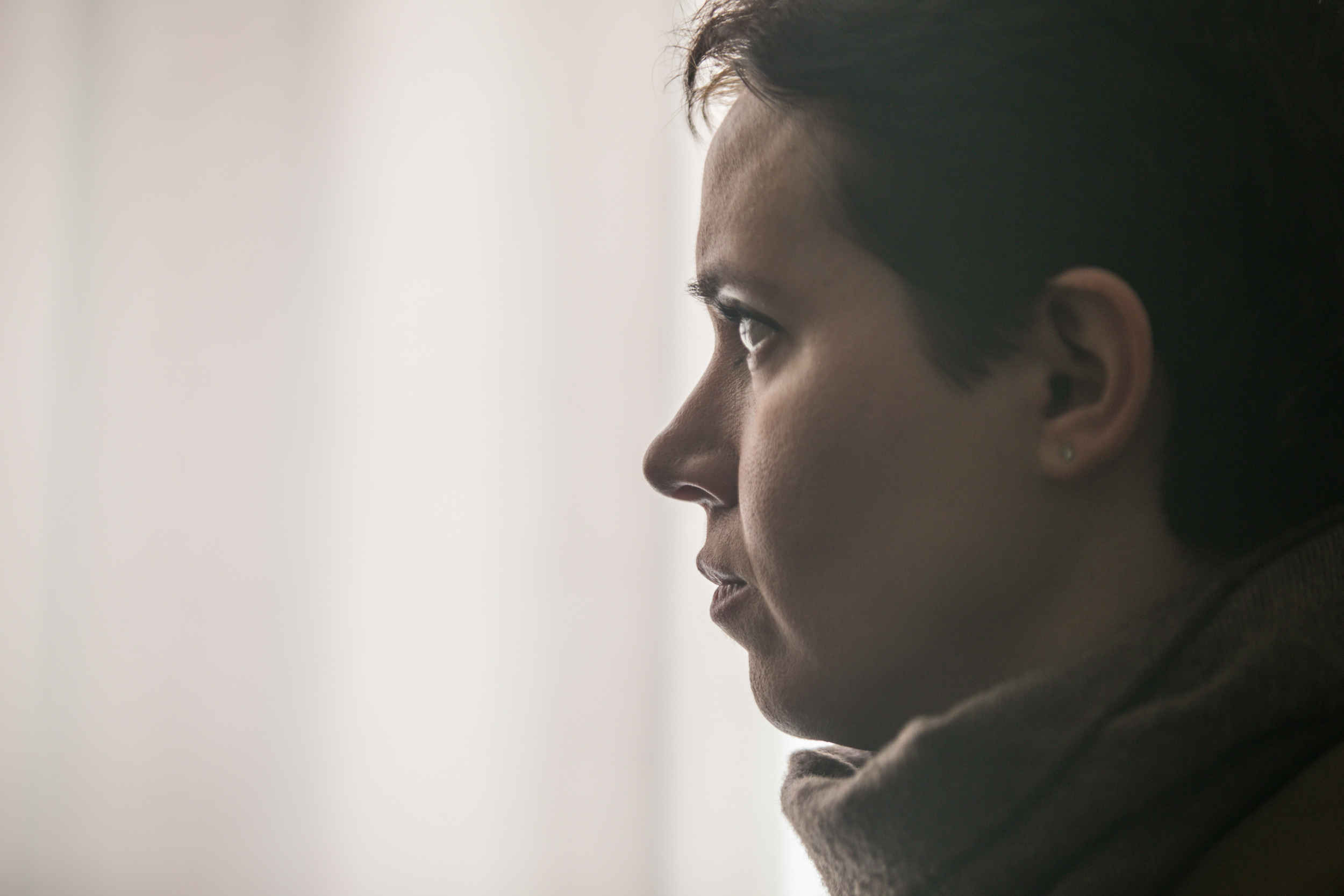
In May 2019, Yanina Sokolova announced to the public that she had been fighting cancer over the previous seven months. Afterwards, she launched a multimedia project called ‘Ya, Nina’, which aims to change society’s attitude to cancer patients as well as cancer patients’ attitudes to themselves. It includes the feature film ‘Ya, Nina’, a book of the same title, and a music video for the song ‘The Seventh Day’, by the band ‘Druha Rika’. ‘Ya, Nina’ also supports initiatives aimed at the prevention of cancer.
— How did you come up with the idea of the ‘Ya, Nina’ project?
— The idea of the project came to me after I had my surgery — they’d removed something, and I was lying there in my hospital room, thinking: “What are you hinting at? What do you want from me? Heavens, why did I have to go through this?” That was when I realised I needed to start this project, and today the story has grown to a much larger scale.
— How did it happen that Valeriy Kharchyshyn joined the project?
— In my life, and especially during my cancer treatment, there were many people I didn’t want to see or hear from — it was hard for me to be with them. Valeriy is a friend I feel at ease with. He understands me, and has tolerated all my quirkiness.
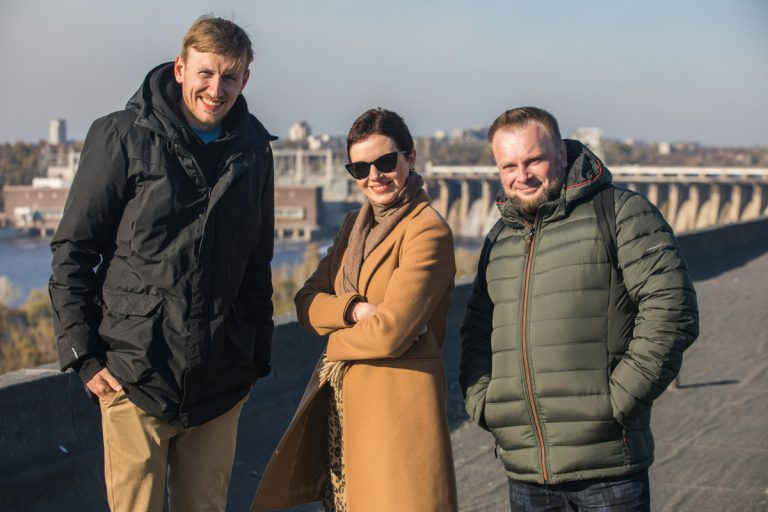
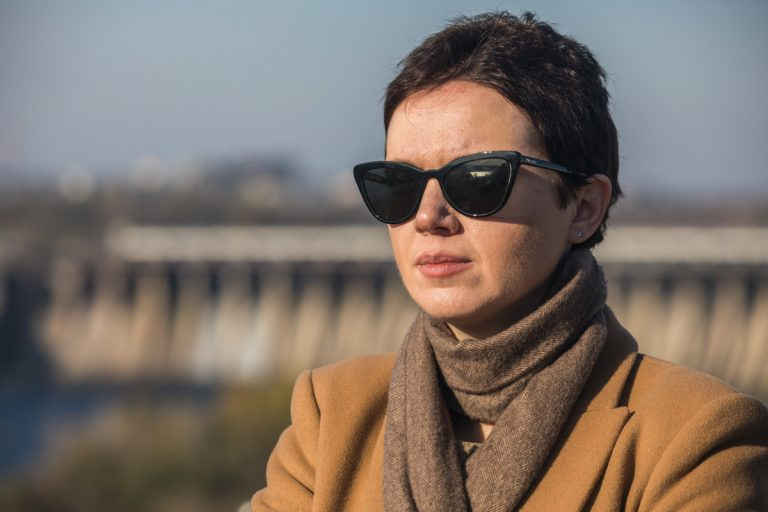
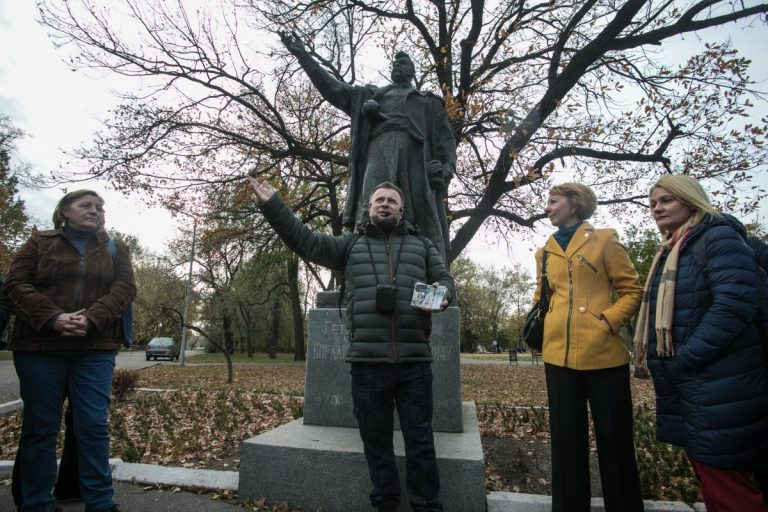
slideshow
A large number of buildings in the Constructivist architectural style have been preserved in Zaporizhzhia. This legacy is often overlooked by Zaporizhzhians themselves, as well as visitors to the city. During the rush of development that began in Zaporizhzhia in the 1920s and 1930s, local architects had an opportunity to design, experiment, and create a new living space. Local history expert Roman Akbash, who gives guided tours around Zaporizhzhia, believes that the most outstanding example of Soviet-era architecture is the Palace of Children and Youth Art. He explains why the city’s architecture is one of its most special features: “Unfortunately, the citizens of Zaporizhzhia believe that there is nothing exciting in the city besides Khortytsia and the Dnipro Hydroelectric Power Plant. I have to persuade people that this isn’t quite true. At the end of the 1920s, they started building a new city in the middle of the steppe. It was a very advanced kind of architecture, since it was mostly young architects working on the project, striving to neglect the old and build something new. In Zaporizhzhia, there are a number of buildings in the Constructivist style. On this small plot of land, they showcased their vivid ideas of Soviet architecture from the 1920s to the 1950s.”
— How would you evaluate the ecological situation in Zaporizhzhia?
— Actually, in my city, this is a difficult topic. Around ten years ago it was like this: “It’s easier to pay fines than to install modern filtering systems or prevent pollution.”
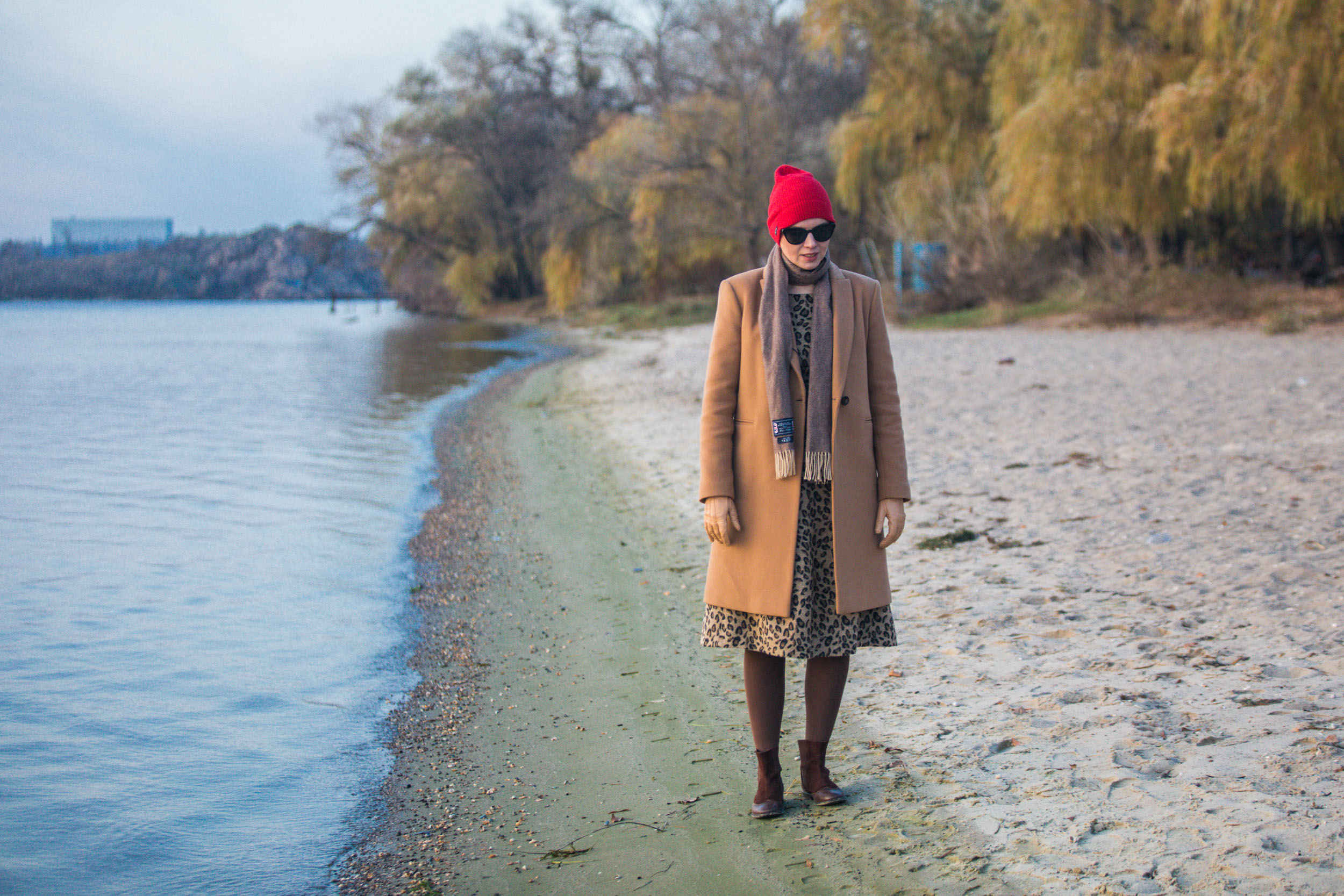
Air pollution is a severe ecological problem in many countries, especially in industrial regions. For years, the energy and metallurgical industries and the chemical industry (to name just a few) have been accused of causing pollution, due to their increasing emissions of harmful substances.
Monitors showing the level of pollution are being installed all over Zaporizhzhia to check the state of the air in different districts. Everyone can follow this information online, from their smartphones. Oleksandr Kostenko, the coordinator of the organisation ‘Ecocoalition Zaporizhzhia’, believes that pollution levels will change over the course of time, but people have to be aware of the environmental situation and monitor it systematically: “If you mention dust, people imagine something like household dust. Within Zaporizhzhia, we’re talking about microparticles of unknown origin, which get into our cardiovascular system. The authorities used to tell us that the main pollutant was traffic, but when activists and civil society began developing networks for public air monitoring, we noticed that levels were escalating as night fell, and then peaking without any correlation. The human body consumes kilograms of air. People tend to think more about the water they drink and the food they eat, but they underestimate the air they breathe, although it is the main problem.”
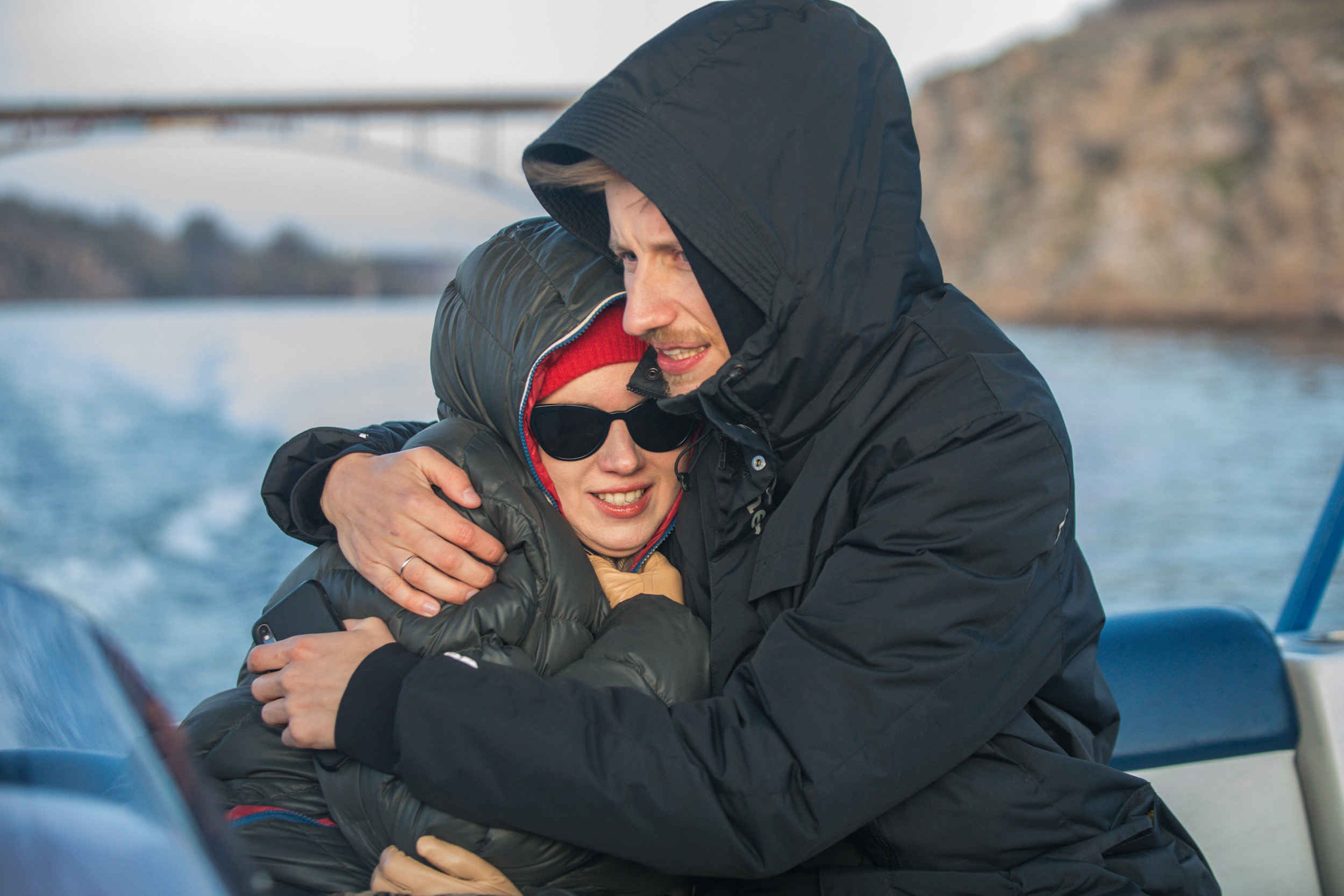
— Have people started to pay more attention to the ecological situation in Zaporizhzhia?
— I think we are moving towards becoming more conscious. At least after I created the ‘Ya, Nina’ project, people started thinking: “Yanina seemed to be a well-to-do lady and out of nowhere she got diagnosed with cancer.” Fear can be a powerful motivator. I understood that people had changed their attitude: air quality does matter. A lot.

